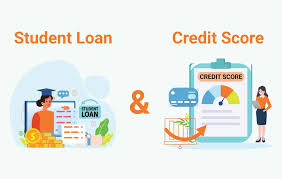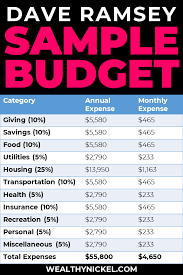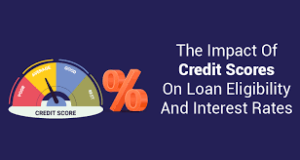In today’s complex financial landscape, understanding the intricate relationship between student loans and credit scores has become more crucial than ever.
As we navigate through 2025, the average student loan debt continues to climb, reaching unprecedented levels that significantly impact borrowers’ financial health.
This comprehensive analysis will explore how student loans and credit scores intersect, providing you with actionable insights and data-driven strategies to maintain strong credit while managing your education debt.
Recent data shows that the average student loan borrower carries approximately $45,000 in debt, with total national student loan debt exceeding $1.8 trillion.
More importantly, research indicates that student loans can impact credit scores by up to 100 points, depending on payment history and management strategies.
Skale Money Key Takeaways
Before diving deep into the analysis, here are the essential points you need to understand:
- Student loans and credit scores share a complex relationship that can either strengthen or damage your credit profile
- Payment history on student loans accounts for 35% of your credit score calculation
- Strategic loan management can help build a positive credit history
- Late payments and defaults can have long-lasting negative impacts
- Various tools and resources are available to help manage both student loans and credit scores effectively
Table of Contents
Understanding the Basics: How Student Loans Appear on Your Credit Report
Your credit report treats student loans as installment loans, similar to mortgages or car loans. However, their unique characteristics set them apart in how they impact your credit profile.
Federal and private student loans appear differently on your credit report, each carrying distinct implications for your credit score.
Key aspects of student loan reporting include:
- Monthly payment status and history
- Total loan amounts and current balances
- Types of loans (federal or private)
- Length of loan history
- Number of individual loan accounts
| Loan Information | What It Shows | Why It Matters |
| Payment History | Monthly Status | Demonstrates reliability |
| Loan Balance | Current Amount | Shows debt burden |
| Loan Type | Fed/Private | Indicates credit mix |
The Mathematical Impact: How Student Loans Affect Your Credit Score Components
Understanding how student loans and credit scores interact requires knowledge of the FICO score calculation formula. Each component plays a crucial role in determining your overall credit health.
Your credit score is influenced by student loans in the following ways:
- Payment history (35%): Regular, on-time payments boost your score
- Credit utilization (30%): Student loans impact your total debt ratio
- Length of credit history (15%): Longer loan history can help your score
- Credit mix (10%): Student loans diversify your credit types
- New credit (10%): Multiple loan applications can temporarily lower scores
Warning Signs: Identifying and Preventing Credit Score Damage
Recognizing potential threats to your credit score early can help prevent significant damage. Watch for these warning signs and take immediate action when they appear.
| Warning Sign | Impact | Prevention Strategy |
| Late Payment | -50 to -110 points | Set up automatic payments |
| Default | -150+ points | Explore income-based options |
| High Usage | -30 to -50 points | Consider consolidation |
Common red flags include:
- Missing payment due dates by more than 30 days
- Using forbearance too frequently
- Maxing out private student loan limits
- Ignoring loan servicer communications
- Failing to update contact information
Strategic Loan Management: Optimizing Your Credit Score While Repaying Student Loans
Developing a strategic approach to loan management can help you maintain and improve your credit score while effectively managing your student debt. This requires understanding various repayment options and their implications for your credit profile.
Essential strategies include:
- Enrolling in auto-pay programs (often with interest rate discounts)
- Choosing appropriate repayment plans based on income
- Considering consolidation when managing multiple loans
- Evaluating refinancing options for better terms
- Building an emergency fund to ensure consistent payments
Recovery and Improvement: Building a Stronger Credit Score Despite Student Loan Debt
Even if your credit has been damaged by student loan issues, recovery is possible through dedicated effort and smart strategies.
Effective recovery methods include:
- Enrolling in rehabilitation programs for defaulted loans
- Making consecutive on-time payments for at least nine months
- Disputing any errors on your credit report
- Building positive credit through other means
- Working with loan servicers to establish manageable payment plans
The Long-Term View: Future Impact of Student Loans on Credit and Financial Goals
Student loans and credit scores continue to influence your financial opportunities long after graduation. Understanding this long-term relationship is crucial for achieving major life goals.
Consider these long-term implications:
- Mortgage qualification requirements
- Employment opportunities in financial sectors
- Investment and savings capacity
- Retirement planning timeline adjustments
- Business loan accessibility
Special Circumstances: Navigating Unique Student Loan Situations
Certain situations require special consideration when managing student loans and credit scores. Understanding these exceptional cases can help you make informed decisions.
Important considerations include:
- Total and permanent disability discharge effects
- Bankruptcy implications (though rarely applicable)
- Public Service Loan Forgiveness impact
- International student loan management
- Co-signer release requirements
Tools and Resources: Managing Student Loans and Credit Scores Effectively
Utilizing available tools can significantly improve your ability to manage both student loans and credit scores successfully.
| Tool Type | Purpose | Cost Range |
| Credit Monitor | Score tracking | Free – $30/month |
| Loan Manager | Payment tracking | Free – $15/month |
| Budget App | Financial planning | Free – $10/month |
Recommended resources include:
- Federal Student Aid website
- Credit bureau monitoring services
- Budgeting and payment tracking apps
- Student loan calculator tools
- Financial advisor consultations
Conclusion
The relationship between student loans and credit scores represents a critical aspect of your financial health. By understanding this connection and implementing strategic management practices, you can maintain a strong credit profile while successfully managing your student loan obligations.
Remember that consistent, on-time payments and proactive loan management are key to maintaining a positive credit score impact from your student loans.
Stay informed about your options, utilize available resources, and don’t hesitate to seek professional guidance when needed. Your student loans, while a significant responsibility, can be managed effectively while building and maintaining a strong credit profile.
FAQ Section
How quickly do student loans affect credit scores?
Student loans begin impacting your credit score as soon as they’re reported to credit bureaus, typically within 1-2 months of loan disbursement. Positive payment history can start building your credit immediately, while missed payments can cause rapid score decreases.
Can student loans improve my credit score?
Yes, consistent on-time payments on student loans can significantly improve your credit score by demonstrating reliable payment history and contributing to your credit mix. This positive impact can be seen within 6-12 months of regular payments.
What’s the impact of deferment or forbearance?
While deferment or forbearance doesn’t directly harm your credit score, excessive use can limit positive payment history. These periods pause payments but also pause the positive credit-building effects of regular payments.
How does loan consolidation affect my credit score?
Consolidation typically causes a small, temporary dip in your credit score due to the credit inquiry and new account opening. However, it can lead to long-term benefits through simplified payment management and potentially lower monthly payments.
Can I remove student loans from my credit report?
Student loans cannot be removed from your credit report unless they’re reported in error. Legitimate loans remain on your report until they’re paid in full, plus seven years for any negative marks.
What’s the best repayment strategy for credit score improvement?
The optimal strategy involves making all payments on time, choosing an affordable repayment plan, setting up auto-pay, and maintaining communication with loan servicers.
Income-driven repayment plans can help ensure consistent payments while managing affordability.
Remember, the key to managing student loans and credit scores successfully lies in understanding their relationship and taking proactive steps to maintain both effectively. Stay informed, plan ahead, and don’t hesitate to seek help when needed.




